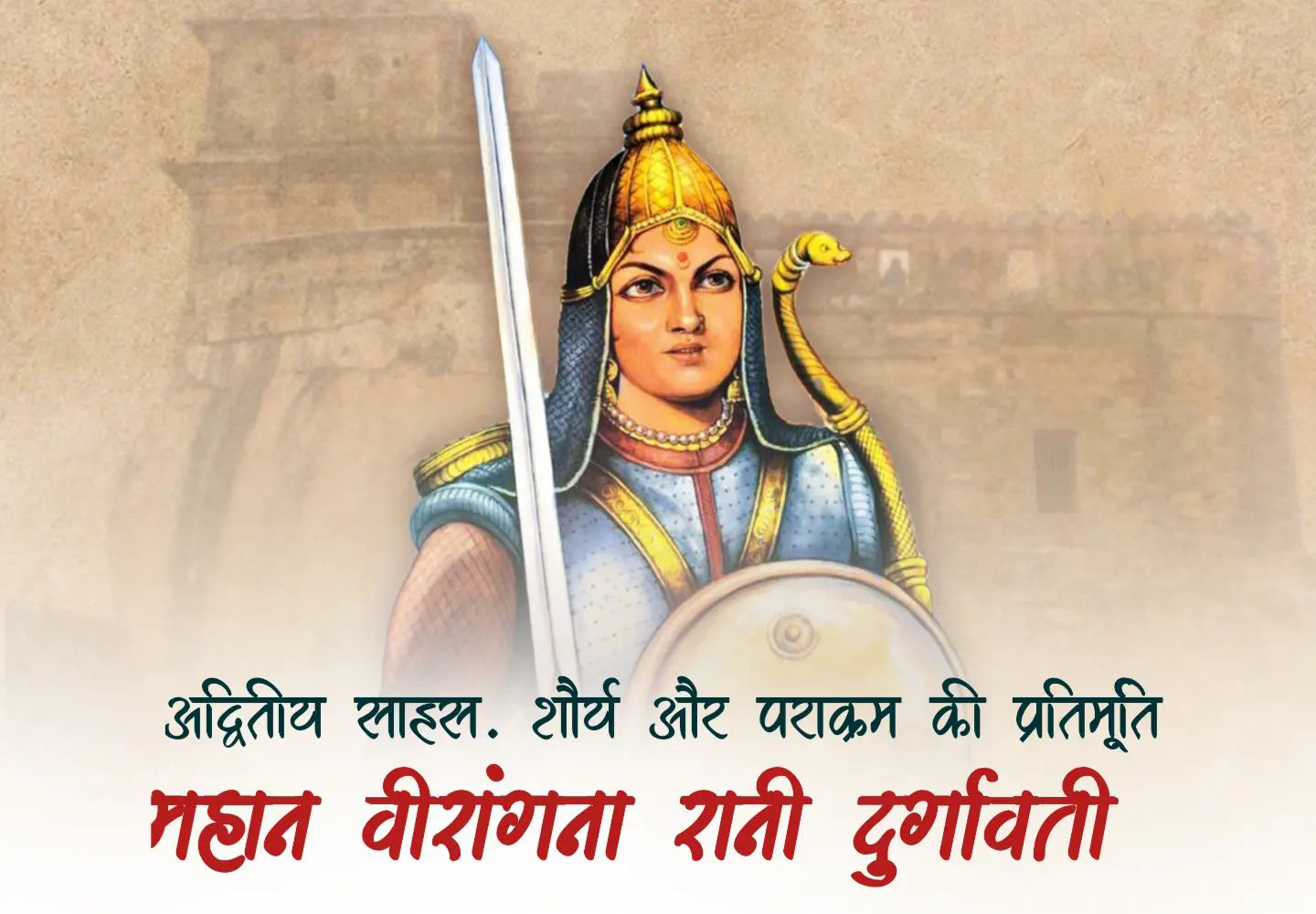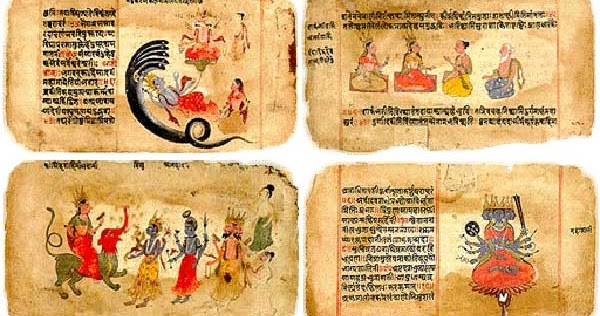By Dr. Bhupendra Kumar Sullere
In the history of India, there are some names that transcend regions and dynasties to become the embodiment of national consciousness and moral strength. Among them shines brightly the name of Veerangana Rani Durgavati of Gondwana — a queen whose life is an immortal saga of courage, leadership, and unwavering devotion to her motherland.
She represents the Indian woman in her truest form — where compassion and determination, policy and valor, service and self-respect coexist in perfect harmony.
Birth and Childhood: The Seed of Courage
Rani Durgavati was born on October 5, 1524, at Kalinjar Fort (present-day Uttar Pradesh) into the Chandela dynasty. Her father, Raja Kirat Rai Chandela, trained her in warfare, politics, and administration from a young age. Gifted in horse riding, archery, and weaponry, the young princess proved that a woman is not merely the guardian of her home, but also the protector of the state and its culture.
Marriage and Rise as Queen of Gondwana
Durgavati married Dalpat Shah, the Gond ruler of Garha-Mandla (modern Madhya Pradesh). This union symbolized not only the alliance of two royal houses but also the harmonious fusion of Aryan and indigenous traditions — a union of Chandela strategy and Gond valor. After her husband’s untimely death, Rani Durgavati assumed the reins of governance on behalf of her young son, Prince Narayan Singh. With her wisdom, justice, and vision, she transformed Gondwana into a strong, organized, and prosperous kingdom.
Good Governance and Welfare of the People
Her reign is remembered as a shining example of welfare-oriented governance. She promoted agricultural reforms, irrigation systems, construction of lakes, roads, and trade routes. Under her rule, Gondwana flourished as a center of art, culture, and learning. She ensured justice, inclusivity, and women’s participation in administration — principles that resonate with the ideals of modern democracy.
The Historic Battle of Singorgarh (1564)
In 1564 CE, Mughal Emperor Akbar sent his general Asaf Khan to invade Gondwana. Rani Durgavati refused to surrender and led her army herself. From the fort of Singorgarh, her forces fought the Mughals with remarkable courage. She, along with her commander Ajeetpal, repelled the enemy several times. However, when the Mughal army surrounded her completely, the queen chose martyrdom over submission.
On June 24, 1564, realizing the inevitable, Rani Durgavati plunged her sword into her own heart, saying —
“To die with honor is the true essence of life.”
This moment remains one of the most radiant symbols of female valor and dignity in Indian history.
Rani Durgavati and Tribal Pride
Rani Durgavati was not merely a warrior queen — she was the embodiment of tribal identity and unity. She brought together the Gond people and proved that tribal culture is an inseparable part of India’s soul. Today, when India celebrates “Tribal Pride Day”, her name stands alongside heroes like Rani Kamlapati and Bhagwan Birsa Munda. Her reign marked a cultural renaissance for the indigenous communities of central India.
Modern Relevance: A Symbol of Women Empowerment
Rani Durgavati’s life continues to inspire India’s women in their pursuit of leadership and dignity. Her example proves that a woman is not merely an emblem of compassion but also the axis of decision-making and nation-building. Government initiatives such as “Nari Shakti Vandan Abhiyan” and “Beti Bachao, Beti Padhao” reflect the same vision of empowering women as torchbearers of progress.
Her life conveys a timeless message —
“Power and service — both rest securely in the hands of women.”
Eternal Inspiration
Rani Durgavati’s life is not merely a historical chapter but a song of the nation’s spirit. She elevated womanhood beyond motherhood, placing it upon the peaks of leadership, justice, and sacrifice. Her legacy lives on through landmarks such as Rani Tal, Rani Durgavati University (Jabalpur), and numerous cultural institutions bearing her name.
October 5 is not just her birth anniversary — it is a celebration of Indian womanhood, tribal heritage, and national pride.
“She who lived for the land, who fought for the truth, Rani Durgavati — the immortal queen of India.”






